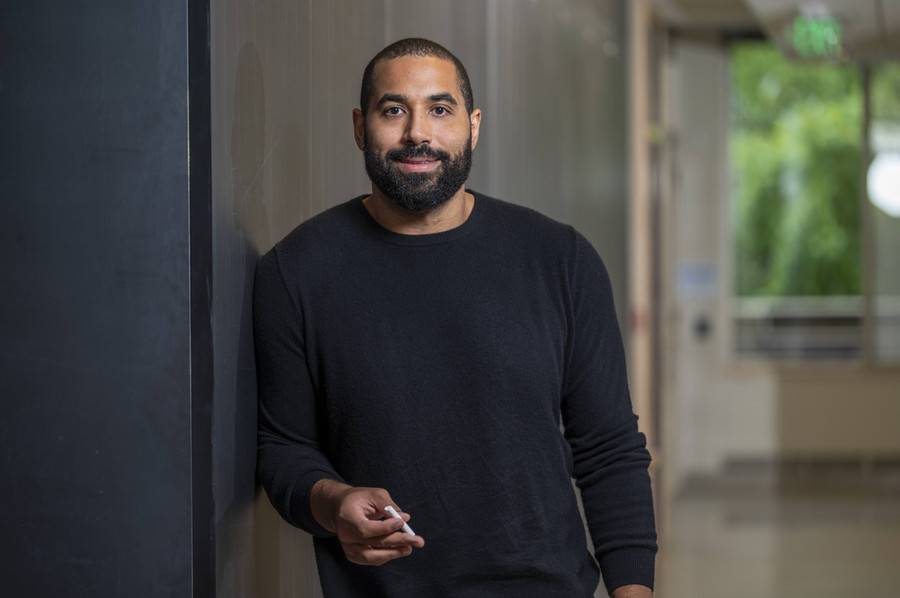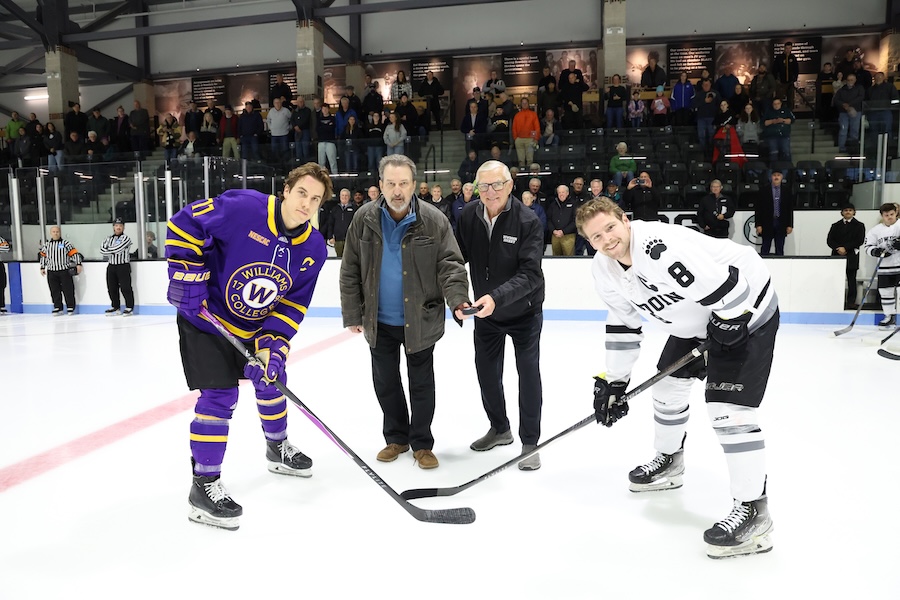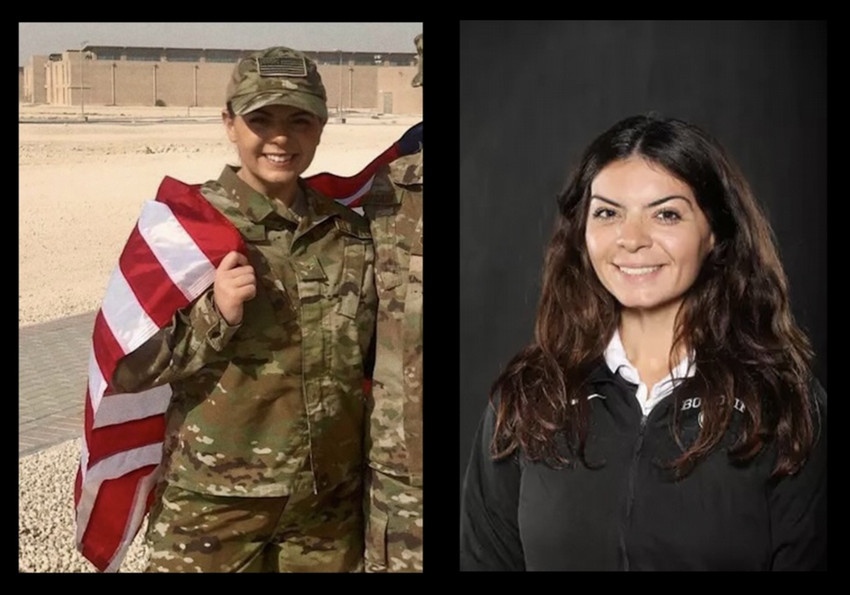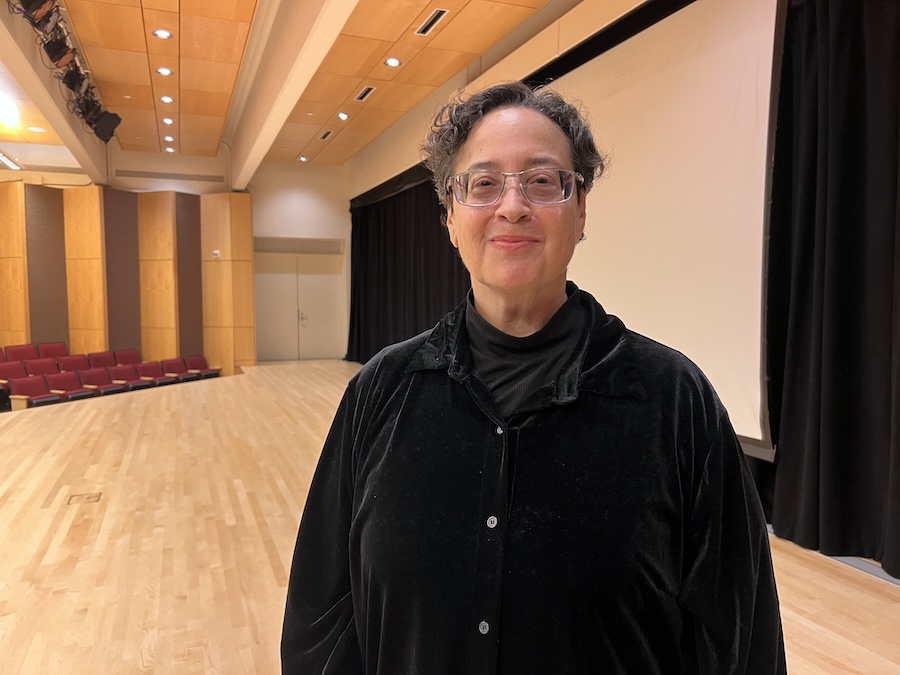Anti-Racism Initiatives Engage Students in Difficult Conversations
By Tom PorterSeamus Frey '23 came to Bowdoin thinking he had been doing a good job as an anti-racist. Coming from a predominantly white town in Massachusetts, he was involved in diversity programs in his local community and his high school. Then 2020 happened.
The racial awakening over the summer, heightened by the death of George Floyd and other incidents, opened Frey’s eyes to the depths of systemic racism in the US, he said. “It made me realize how much I didn’t know and how much work there was still to do.”
At the beginning of the fall semester, Frey, a student journalist, was excited to learn about some of the efforts underway at Bowdoin. It was prompted by a meeting with Director of Religious and Spiritual Life Eduardo Pazos and Associate Dean of Students for Inclusion and Diversity Kate Stern.
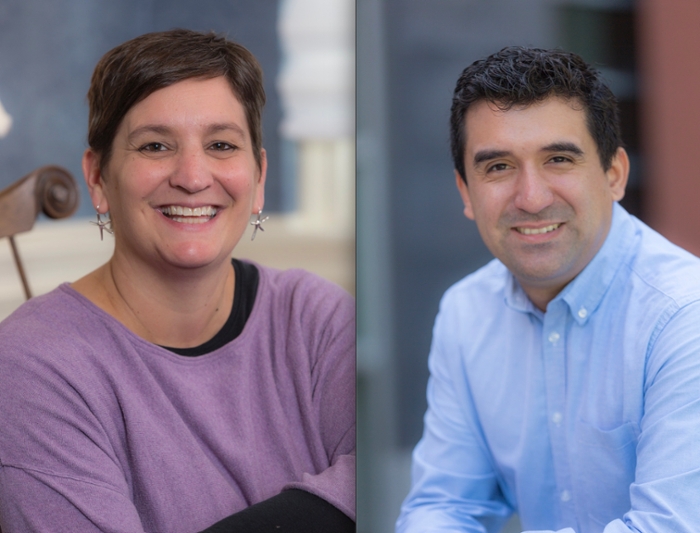

“I interviewed Kate and Eduardo for an Orient article about anti-racism workshops they were running under the Bowdoin Dialogues program and it made me want to get involved personally,” said Frey.
Frey enrolled in “Race, Power, and Liberation,” an intergroup dialogue workshop run under the Bowdoin Dialogues initiative. It’s a series of six ninety-minute workshops devised for students by Pazos and Stern. They are also developing a more condensed version for student affairs staff. “We’ve been talking for a while about the need to have a space that allows us to go a little bit deeper into the conversation,” said Pazos, who spent much of the summer creating a curriculum for the workshop. “We start looking at personal identity and privilege, and then we explore systematic and historical oppressions. From there, we move on to the work of anti-racism, and then we will finish looking at the liberation aspect, because it's important that these conversations lead us to a place of liberation, justice, and healing.”
One of the ideas Frey said he learned about in the workshop was the concept of white racial stamina. “We’ve talked about white fragility, where white people find it hard to talk about race. Racial stamina is what’s required to take part in those conversations. As white people,” he explained, “we don’t see white culture because we just live it, so it’s harder to analyze and criticize.”

Athletic Efforts
Another aspect of Bowdoin Dialogues is an initiative run by the athletics department called “Real Talk on Race.” Now in its second year, it’s been expanded to require all teams to hold conversations about how to create an anti-racist culture in their midst.
“It is essential that Bowdoin, especially the athletic department, cultivates a culture that is inclusive for all,” said basketball player Anne Maher '21. “None of our teammates should face acts of racism in a place intended to serve as a second home. We are asking that white students commit to undoing white supremacy and racism so that our athletes of color feel valued and respected at all times,” she added.
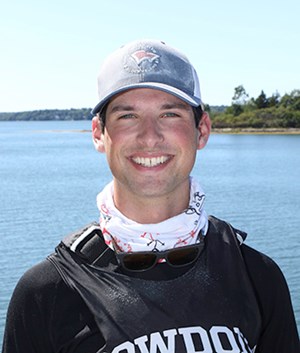
John Seider '22, who is on the sailing team, said “Real Talk on Race” is a valuable introduction to the work of anti-racism. “The dialogues encourage teams to lean into the challenges of this work together, supporting one another in the process. Cohesion is an asset to any team,” he added, “and athletes are embracing the opportunity to make their team cultures more inclusive while amplifying the voices of their BIPOC teammates.” (BIPOC refers to black, indigenous, and people of color.)
“Real Talk on Race” is part of a wider action plan recently released by the Bowdoin athletic department.
Learning to See Whiteness
Earlier this year, the College launched a series of conversations billed as the Intragroup Dialogue on race designed specifically for white students. These types of dialogues are described by Kate Stern as “a series of conversations for members of the same social identity group to explore issues of social justice and not rely on their colleagues of marginalized identities to carry the burden of education.”
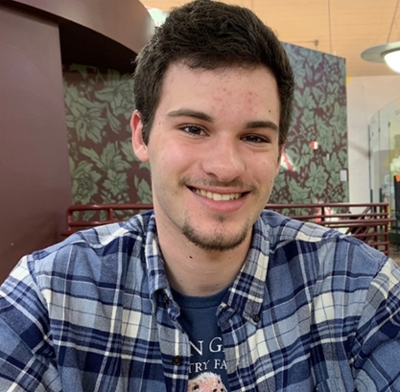
Senior Ryan Telingator is one of the facilitators. “The program,” he explained, “seeks to provide a space for white-identified students to discuss race, racism, and anti-racism through the lens of whiteness, connecting around a shared identity. This workshop is important because it forces white students to reckon with their unearned privilege and challenges them to start to use their position as a white person to be anti-racist, for it is unacceptable to be neutral or silent about racism,” he said.
Another main aim of the program, said cofacilitator Abby Bennitt '23, is to address the difference between being a “good” white person and being actively anti-racist. “Living in a society that upholds structures of oppression, racism shows up in our lives in nuanced ways. Inevitably,” she added, “everyone has biases, and we aim to give people a space to confront the ways in which there is room for growth.”
Leaving the Comfort Zone
Stern said this year’s focus on anti-racism by inclusion and diversity staff in Student Affairs is important in moving our community forward. “It has been great engaging with students from across the College and hearing feedback that some students who thought they were 'all set' are now realizing while engaging that there is so much more they want to learn.
“I challenge students reading this to find opportunities to get out of your comfort zone and find opportunities to learn about and engage with anti-racism. We all have a lot we can learn."
